
The master developments, business parks and residential communities we see around us have spent years in the planning, design and construction phases. Rightly so; they are expected to have decades of use in them. Yet, time and again, we see critical costs being ignored, financial risk assessments that are sorely lacking, and budgets that simply don’t add up. Here, we’ll assess why this happens, the potential pitfalls, and most importantly, suggest how proper stress tests via bespoke validation models can help create truly sustainable developments – as relevant in 50 years’ time as they are today.
Pre-concept design
Briefly speaking, all projects begin with a feasibility process, during which developers analyze the best use of their land and the market fundamentals and opportunities for this use. This leads to a pre-concept design that meets a capital budget, or CAPEX.
However, too often, there is a fundamental gap between a developer’s analysis of the capital expenditure required to build their project, and the operational costs of maintaining this asset – the OPEX. In fact, the vast majority of developers don’t define the latter at all, or they base this cost on misleading benchmarks. For example, it’s not uncommon for developers of luxury residential projects to benchmark their service charge on an affordable housing development or compare a high-density project to one that is less efficient.
Bu hikaye Commercial Design dergisinin April 2020 sayısından alınmıştır.
Start your 7-day Magzter GOLD free trial to access thousands of curated premium stories, and 9,000+ magazines and newspapers.
Already a subscriber ? Giriş Yap
Bu hikaye Commercial Design dergisinin April 2020 sayısından alınmıştır.
Start your 7-day Magzter GOLD free trial to access thousands of curated premium stories, and 9,000+ magazines and newspapers.
Already a subscriber? Giriş Yap
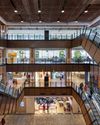
TRENDS SHAPING URBAN WORKPLACE TRANSFORMATION
Since 2013, Gensler's the trend report has highlighted trends shaping the future; this year's edition offers a blueprint for sustainable, human-centered spaces and evolving city dynamics

GLOBAL EDITORIAL CHOICE AWARD - EXCELLENCE IN FACILITY LEADERSHIP - Vinod Mathews, Regional Director of Global Real Estate & Facilities, APAC at Amazon
Vinod Mathews' career reflects a blend of military precision and corporate expertise.

PRIDE OF INDIA-WOMAN IN FACILITY MANAGEMENT - Reshmi Shankar, Vice President and Head of Facilities Management Group for India, Sri Lanka, and Bangladesh at Wipro Limited
Reshmi Shankar leads one of the most challenging roles in corporate real estate, managing over 25 million square feet of workspace and supporting 230,000 employees with strategic precision and innovative vision.

HALL OF FAME - Irfan Rzack, Chairman and Managing Director of Prestige Group
With an illustrious career spanning decades, Irfan Razack, Chairman and Managing Director of Prestige Group, has redefined the contours of Indian real estate.

HALL OF FAME - M.R. Jaishankar, Managing Director, Brigade Group
As the driving force behind Brigade Group, M.R. Jaishankar's visionary leadership has redefined the real estate industry, integrating innovation, sustainability, and community focus into urban development.

CELEBRATING EXCELLENCE: COMMERCIAL DESIGN AWARDS 2024
The city of Bangalore recently played host to one of the most anticipated events in the commercial design and real estate industry—the Commercial Design Awards 2024. The event was a grand celebration of creativity, innovation, and excellence, drawing together a distinguished gathering of architects, designers, developers, project heads and facility managers from across the nation.
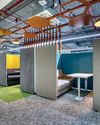
The Future of Workplace Ergonomics: A glimpse into tomorrow's workspaces
As work dynamics shift, the demand for adaptable and health-conscious office environments grows.
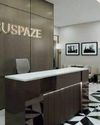
INCUSPAZE AIMS TO SECURE $25M FOR EXPANSION AMID GROWING DEMAND FOR FLEXIBLE WORKSPACES
Coworking firm Incuspaze is looking to raise USD 25 million (over Rs 210 crore) to expand its business across major cities before planning to launch its Initial Public Offer (IPO).
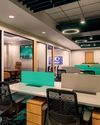
ONWARD WORKSPACES SECURES A 14,000 SQ. FT. MANAGED OFFICE TRANSACTION WITH LENSKART IN NEW DELHI
Onward Workspaces, a flexible and managed coworking solutions brand, has entered into a managed office deal with Lenskart, one of India's largest eyewear retailers.
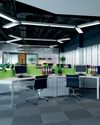
WORKING TOGETHER
Professor Louise Valentine, Head of the Design School at Heriot-Watt University, on the importance of inclusive design in the workplace